The Daily Wager’s Son Who Cracked IAS & Became Odisha’s ‘People’s Collector’
Known for his people-centric initiatives, Ganjam Collector Vijay Amruta Kulange braved big odds to crack UPSC, become an IAS officer and fulfil his dream of serving the common man.
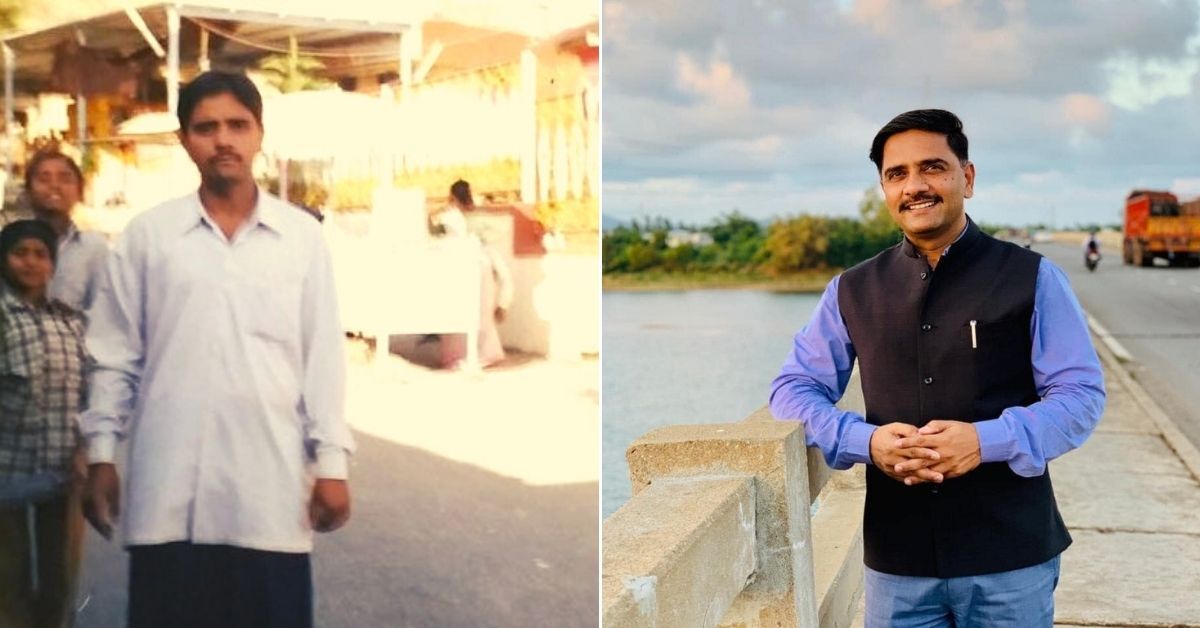
Stories of people overcoming adversity resonate with something deep within us. The parts of us that hope our future is not determined by destiny but by our hard work. One such incredible story of resilience and inspiration belongs to IAS officer Vijay Kulange.
Born in the tiny village of Ralegan in Maharashtra’s Ahmadnagar district to a father who worked as a tailor and a mother who worked as a daily wage worker on farms, Vijay grew up seeing his parents toil all day long to make both ends meet.
Earning just about Rs 200 a day, his parents were constantly worried about providing their children with two square meals a day. Money was always scarce, and even bare necessities were unimaginable.
The only thing Vijay had ever had in abundance during childhood was a burning desire to lessen his parents’ worries and to do them proud. And all through his life, he did just that.
“Despite living in such hardship, both my parents were firm in their shared belief that this situation would not determine how far their children would go in life. From a young age, my parents taught me the importance of education and how it could change our lives for the better. My sister and I may have never had any toys in our childhood, but we never lacked the stationery required to attend the local Zilla Parishad school. The school was always a priority”, Vijay tells The Better India.
A voracious reader, Vijay was always among the top performers at school — in the 10th board exams and his 12th board examinations. Having grown up in a drought-prone village with high poverty levels and very little development, he decided to become a doctor and serve the underprivileged. However, despite getting a college seat to pursue MBBS, he had to drop this dream due to the family’s financial circumstances.
“We were still living in poverty, and I needed to start earning as soon as possible. The 7-8 years needed to make a career in the medical profession was something I couldn’t afford. I had a younger sister, and as was common in those days, my parents were worried about her marriage. Plus, we would have needed to take a huge loan. Any failure would have meant disaster for the family”, says Vijay.
Vijay decided to do something that would lead to a job immediately.
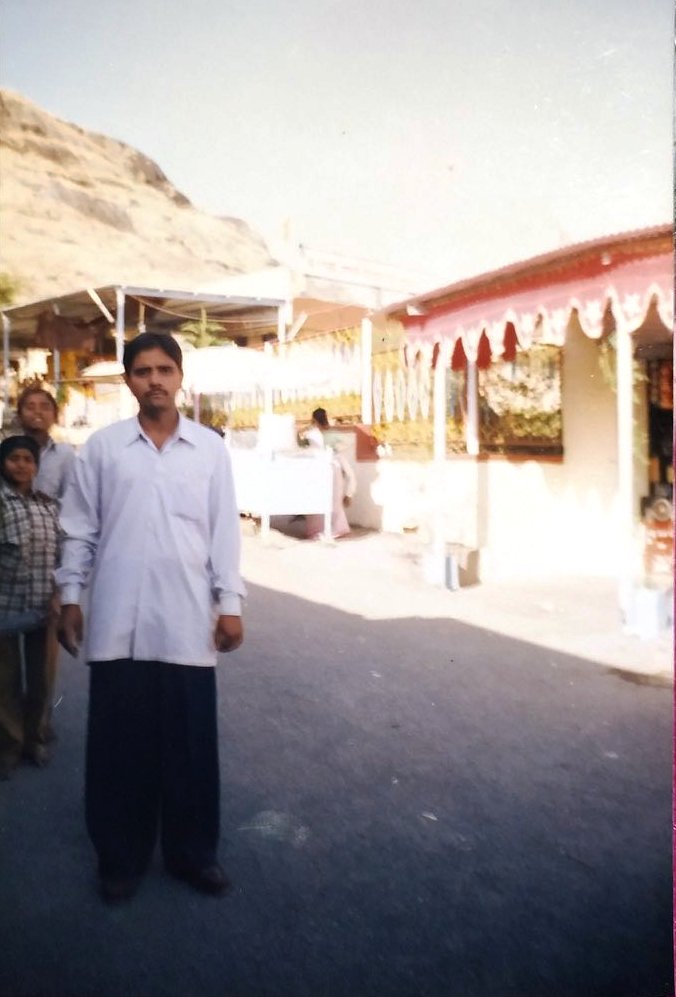
Choosing a Diploma in Education (D.Ed) after careful consideration, he completed it and joined as a primary teacher at a government school in the nearby Nevasa taluka within six months. A steady salary from this job went a long way in assuaging his parents’ worries while also helping him do his graduation via distance education.
But Vijay always felt he could have achieved more. His father also sensed this constant thought in Vijay’s mind and encouraged him to prepare for the state civil service exam.
“My father would tell me that studying for an exam is never a loss. It is always a win-win. If I qualify and get a better job, it would be great. But even if I didn’t, I would have gained precious knowledge while still having my current job. He also pointed out that it would help me become a better teacher as well”, recalls Vijay.
These words would go on to help Vijay several times in his journey. Inspired by them, he decided to prepare for Maharashtra State Civil Service (MPSC) exam. Covering the vast syllabus wasn’t an easy task, but he persevered, sticking to a strict routine of working by day and studying by night.
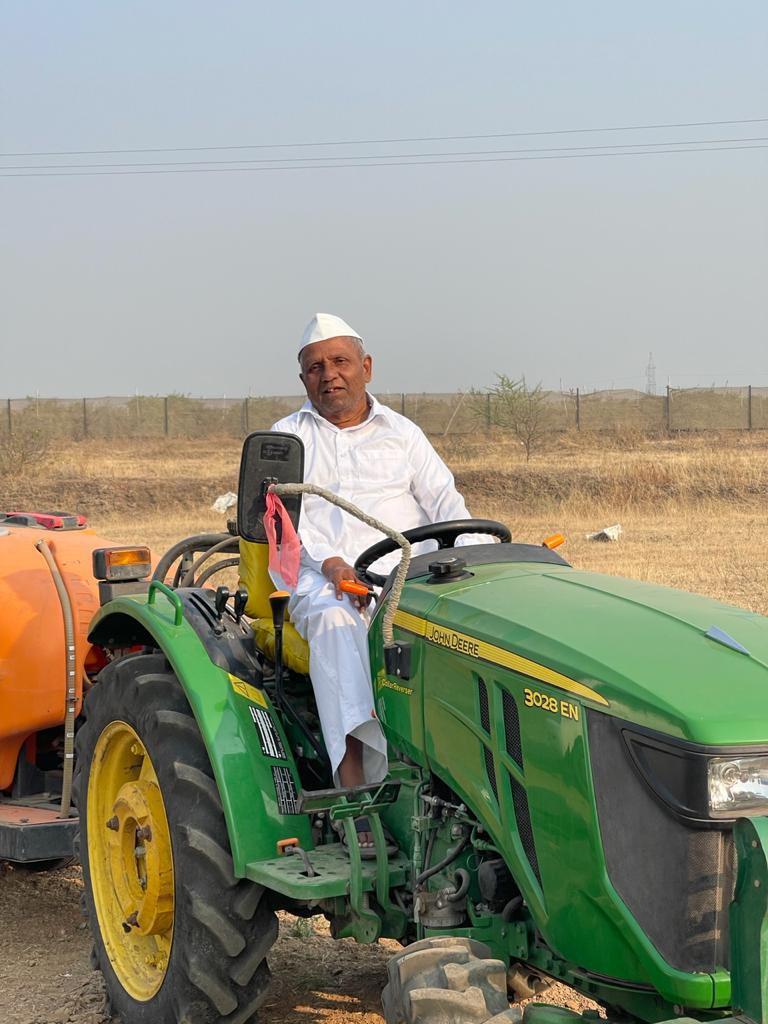
In his first two attempts, Vijay failed to crack the exam. Naturally, he was disappointed, but his parents never let his spirits drop. On the contrary, they constantly bolstered up his belief in himself, so Vijay decided to quit his job and dedicate all his time to a final attempt.
The decision paid off when he cracked the MPSC exam on his third attempt and became a Sales Tax Inspector in Ahmadnagar. In the following year, he also cleared the exam for the post of Tehsildar.
“With every success in these exams, my confidence kept increasing. Also, during this time, I met the then-District Collector of Ahmadnagar, IAS officer Sanjeev Kumar, who encouraged me to attempt the UPSC Civil Service Examination. I took up his suggestion – despite getting very little study leave for preparations”, says Vijay.
Vijay decided not to take any coaching and would study hard in the little time he would get before and after his duty hours. Since he still struggled with English, he chose to give the exam in Marathi, which made preparation more challenging since little study material was available in the language. But, as they say, fortune favours the brave. In 2012, he cracked UPSC CSE in his first attempt and earned the rank of an IAS officer.
When asked what was crucial in his success, Vijay says, “It was the confidence lent by my father’s words and the safety net of my job that let me attempt UPSC CSE with very little fear or pressure. I wasn’t worried about not qualifying. I just wanted to give my best. What also held me in good stead were five years of making notes for the state civil service exam.”
Vijay’s first posting as an IAS officer was in Odisha’s Dhenkanal district. He has since penned a Marathi book ‘Aajcha Diwas Maza’, where he described his struggles, journey, and the sacrifices his parents had made to raise their children. Today, he lives with his proud parents and continues to work proactively towards transforming Odisha.
During the COVID-19 pandemic, Vijay earned much public acclaim for kickstarting a slew of popular initiatives as the collector of Ganjam. This district has been hit by Cyclones Fani, Yaas and Amphan.
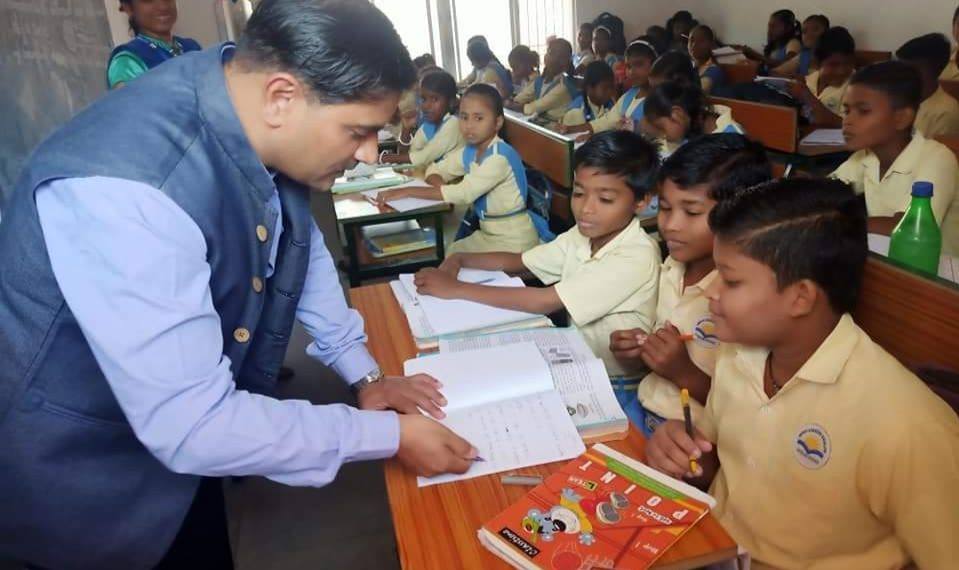
“A large number of migrant workers from this district work in Surat and Mumbai. During the first wave of the pandemic in India, four lakh of them returned home at once, making it a massive task to trace, quarantine, test and treat the positive cases. We began providing food packets, sanitisers and transportation to Temporary Medical Camps (TMC) for a mandatory quarantine stay to each of these returnees. An incentive of Rs 15,000 (to be given post-quarantine) was also announced. And since most of these TMCs had been set up in schools, we used the skills of the migrant labourers to beautify and repair all the school campuses – as employment under MGNREGS “, shares Vijay,
Ganjam was among India’s first districts to promulgate Section 144 of CrPc to restrict gatherings of five or more people. In addition, all Tahsildars of the district were declared as ‘Incident Commanders’ under the Epidemic Diseases Act to enforce the prevention guidelines. A fine enforced wearing a mask, and special squads ensured that shopkeepers followed social distancing norms in their stores.
Even though these measures helped the district stay Covid-free for almost two months, Vijay boosted the district’s health infrastructure to handle an increased load. A 200 bed COVID hospital with 50 ICU beds was prepared in 15 days by Vijay and his team, who worked round-the-clock to make this happen. Three other COVID hospitals, eight COVID Care Centres, and a 20KL Liquid Medical Oxygen plant was set up. Door-to-door screening was also conducted in the district that has a population of over thirty-five lakh, with Rs 50 lakh offered to the family of every frontline worker who lost their lives while doing their duty.
Even when the cyclonic storm Yaas hit Ganjam in May 2021, Vijay managed to keep the district running with timely evacuations and the equipping cyclone shelters with an adequate supply of medical oxygen, hospital beds and doctors for Covid-19 patients.
All this was done when most of the country was struggling to meet the logistical challenges that a deadly second wave posed.
Vijay also launched an initiative under which anybody who provided a tip-off about an upcoming child marriage would get a cash reward of Rs 5,000. The informer’s identity would be kept a secret. Unsurprisingly, the idea was a resounding success – 38 child marriages were prevented in a few months!
“Though many people know about such child marriages being organised, they rarely inform the administration, fearing backlash from the families and the village leaders. The anonymity and cash award we offered motivated these people to come forward and flag cases, thus saving many young girls,” says Vijay.
Vijay followed this by revamping 60 government schools — sanitation and hygiene were improved, staff requirements were filled, smart labs and libraries were installed, and their functioning was monitored. He also launched the ‘Jala Ghanti’ (Water Bell) initiative to help students stay hydrated and make drinking water frequently a habit.
You can identify me?Standing with my students. It’s trip to Konjai Hill nearby the Dattawadi School, where I was working as a primary teacher. We use to go for trip in month of Shravan. Just was going with old album. pic.twitter.com/YvgyQuh5Ju
— Vijay IAS (@Vijaykulange) August 13, 2021
Having had personally witnessed the difficulties of farmers and farm workers back in his village, Vijay has also launched the TARA scheme to increase farm incomes through crop diversification and training in techniques such as mulching, moisture conservation, micro-irrigation and more.
In fact, during the pandemic, the Ganjam district used MGNREGS funds worth over Rs 50 Crore to help marginalised farmers improve their earnings.
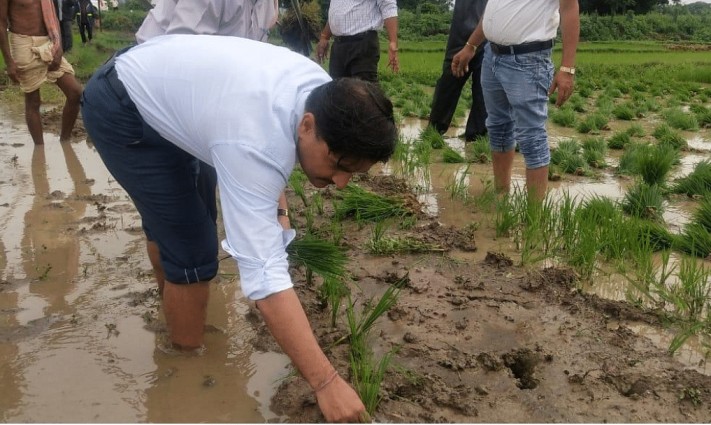
The best example of this stunning impact is the story of B Chakradhara Reddy, a poor farmer who makes a living by selling milk from his four cows. Due to a scarcity of fodder and the lack of a shed to shelter his cows, milk production fell drastically during the pandemic, leaving him struggling to make ends meet till he applied for the TARA scheme.
“Without spending any of my savings or taking any loans, I got a cattle shed, a compost pit, a soak pit, a fodder production unit and a farm pond – all through MGNREGS funds released through the TARA scheme. As a result, my cows are much healthier and producing double the milk they would give earlier. I am also using their dung to grow vegetables and fodder. As for the pond, I have learnt the basics of pisciculture, and I will start practising it soon”, says B Chakradhara, relief and gratitude evident in his voice.
Schools in Ganjam, Odisha. Now school transformation is becoming campaign in Odisha pic.twitter.com/fm3J0pIxOQ
— Vijay IAS (@Vijaykulange) November 17, 2021
The list of IAS Vijay Kulange’s initiatives is a very, very long one – he is also the brain behind ‘Rajaswa Rath’, an innovative idea that takes revenue services such as updation of land records and issuing of certificates to the doorsteps of people. All district collectors in Odisha have now been told to emulate Ganjam’s example and implement this idea.
While this infectious passion for public service has fetched him widespread respect in the official circles, his instinctive thoughtfulness has endeared him deeply to the people of Odisha. Even apart from his work, his journey of chasing his dream with a single-minded focus is nothing short of inspirational.
However, he wears this praise lightly. “It wasn’t easy, but I was willing to work hard for it and was determined to succeed. That is what got me through,” concludes the IAS officer.
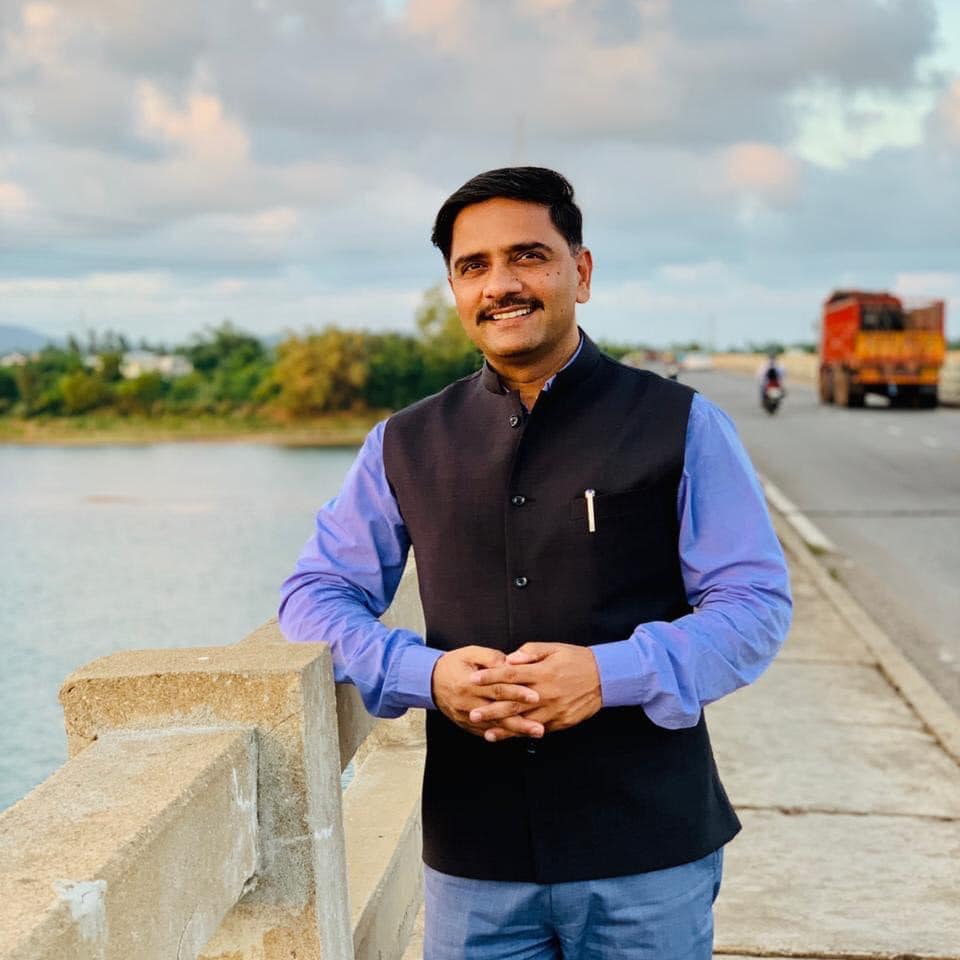
(Edited by Vinayak Hegde)
If you found our stories insightful, informative, or even just enjoyable, we invite you to consider making a voluntary payment to support the work we do at The Better India. Your contribution helps us continue producing quality content that educates, inspires, and drives positive change.
Choose one of the payment options below for your contribution-
By paying for the stories you value, you directly contribute to sustaining our efforts focused on making a difference in the world. Together, let’s ensure that impactful stories continue to be told and shared, enriching lives and communities alike.
Thank you for your support. Here are some frequently asked questions you might find helpful to know why you are contributing?


This story made me
-
97
-
121
-
89
-
167













